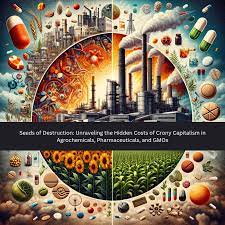Understanding and Defying Depression: Unraveling the Murk
Depression, often described as the 'common cold' of mental health, is a complex and pervasive mood disorder that affects millions worldwide. It transcends mere feelings of sadness; it's an intricate web of emotions, behaviors, and physical manifestations that can cripple individuals, disrupting their daily lives and impeding their ability to function.

1. The Multifaceted Nature:
Depression isn't a one-size-fits-all condition. It manifests uniquely in each person, stemming from a myriad of factors—genetic, biological, environmental, and psychological. Genetics can predispose one to depression, while environmental triggers like trauma, stress, or loss can act as catalysts.

2. The Neurochemical Imbalance:
A commonly understood aspect is the alteration of neurotransmitters like serotonin, dopamine, and norepinephrine. These chemicals regulate mood, and their imbalances can contribute to depressive symptoms.
3. The Behavioral Manifestations:
Withdrawal, loss of interest in previously enjoyed activities, changes in appetite and sleep patterns, fatigue, and difficulty concentrating are typical behavioral signs. It's not just a mental burden; it also takes a toll on physical health.
4. The Stigma Surrounding Depression:
Despite progress, stigma still shrouds discussions about mental health. This stigma often prevents individuals from seeking help due to fear of judgment or societal misconceptions.
1. Seeking Help:
Encouraging individuals to seek professional help is crucial. Therapy, medication, or a combination of both can significantly alleviate symptoms. Cognitive-behavioral therapy (CBT), mindfulness practices, and support groups have shown efficacy in managing depression.
2. Lifestyle Modifications:
Healthy lifestyle choices play a pivotal role. Regular exercise, a balanced diet, adequate sleep, and minimizing substance use can positively impact mental health.
3. Social Support:
Building a robust support network can provide a safety net during tough times. Strong relationships and social connections are essential buffers against depression.
4. Educating and Destigmatizing:
Education and open conversations about mental health are instrumental in dismantling the stigma. Normalizing discussions and encouraging empathy and understanding can make seeking help less daunting.
5. Holistic Approaches:
Holistic practices such as yoga, meditation, art therapy, and mindfulness can complement conventional treatments, fostering a comprehensive approach to mental well-being.
6. Research and Innovation:
Advancements in neuroscience and psychiatry continue to expand our understanding of depression. Innovations in treatments like ketamine therapy or transcranial magnetic stimulation (TMS) offer hope for treatment-resistant depression.
Conclusion:
Depression's murkiness doesn't make it insurmountable. Understanding its intricacies and implementing a multifaceted approach to combat it is key. Progress lies in a combination of stigmatization, education, accessible mental health services, and ongoing research to enhance treatment options. Together, as a society, embracing empathy, support, and understanding, we can effectively defy the grasp of depression and pave the way toward mental wellness for all.
In the shade of mortal feelings, depression casts a shadow that extends far beyond bare passions of sadness. It’s a complex and pervasive internal health condition that touches the lives of millions. This composition aims to claw into the complications of depression, slipping light on its colorful angles, exploring its impact, and offering receptivity into managing strategies and support systems.
* The Weight of Darkness, A regard into Depression *
Depression isn’t just feeling blue or having a bad day; it’s a patient and profound sense of despair that can color every aspect of life. It goes beyond the ups and camp owe all experience, manifesting in a prolonged state of emotional impassiveness, foreignness, and a pervasive lack of interest or pleasure in formerly- pleasurable conditioning. Understanding that depression is further than a passing mood is the first step toward addressing its challenges.
* The Silent Struggle Feting Signs and Symptoms *
One of the intricate aspects of depression is its capability to cloak itself in colorful disguises. Feting the signs and symptoms is pivotal for early intervention. Patient passions of sadness or emptiness, changes in appetite and sleep patterns, fatigue, and a sense of worthlessness are common pointers. Cognitive functions may be affected, leading to difficulties in attention and decision-timber. The unnoticeable nature of these struggles frequently results in individualizes suffering in silence, farther emphasizing the need for heightened mindfulness and open dialogue.
* The numerous Faces of Depression Diverse Forms and Causes *
Depression does not cleave to a one-size- fits-all model. It manifests in colorful forms, including major depressive complaint, patient depressive complaint, bipolar complaint, and seasonal affective complaint, among others. Biological factors, similar as genetics and brain chemistry, play a part, while life events, trauma, and habitual stress can act as triggers. Understanding the multifaceted nature of depression is essential for acclimatizing effective approaches to treatment and support.
* Breaking the smirch Fostering Open exchanges *
smirch remains a redoubtable hedge to addressing depression. Societal misconceptions and judgments frequently compass internal health issues, contributing to a culture of silence and shame. Enterprise that break down these walls, foster open exchanges, and promote understanding are vital. By homogenizing conversations around depression, we produce a space where individualities feel empowered to seek help without fear of judgment, paving the way for a more compassionate and probative society.
* The Vicious Cycle Depression and Physical Health *
Depression is not confined to the realm of feelings; it can profoundly impact physical health. The intricate connection between mind and body means that individualities scuffling with depression may witness changes in appetite, dislocations in sleep patterns, and a compromised vulnerable system. Also, the languor and lack of provocation that frequently accompany depression can hamper the relinquishment of healthy life habits. Addressing the holistic well- being of individualities with depression requires a comprehensive approach that considers both internal and physical health.
* Managing Strategies Navigating the Emotional Landscape *
Managing depression involves navigating a complex emotional geography. While professional intervention is pivotal, individualities can also incorporate managing strategies into their diurnal lives. Regular exercise has been shown to have positive goods on mood by releasing endorphins, the body’s natural mood lifters. Awareness practices, similar as contemplation and deep breathing exercises, can help individualities base themselves in the present moment, easing some of the emotional turbulence that accompanies depression.
* Professional Support A Beacon in the Darkness *
Seeking professional help is a foundation of effective depression operation. Trained internal health professionals, including therapists, counselors, and psychiatrists, can give acclimatized interventions, ranging from psychotherapy to drug. Prostrating the disinclination to seek help frequently involves grueling societal morals and feting that internal health care is a valid and essential aspect of overall well- being. Accessible internal health services and increased mindfulness of available co



You must be logged in to post a comment.